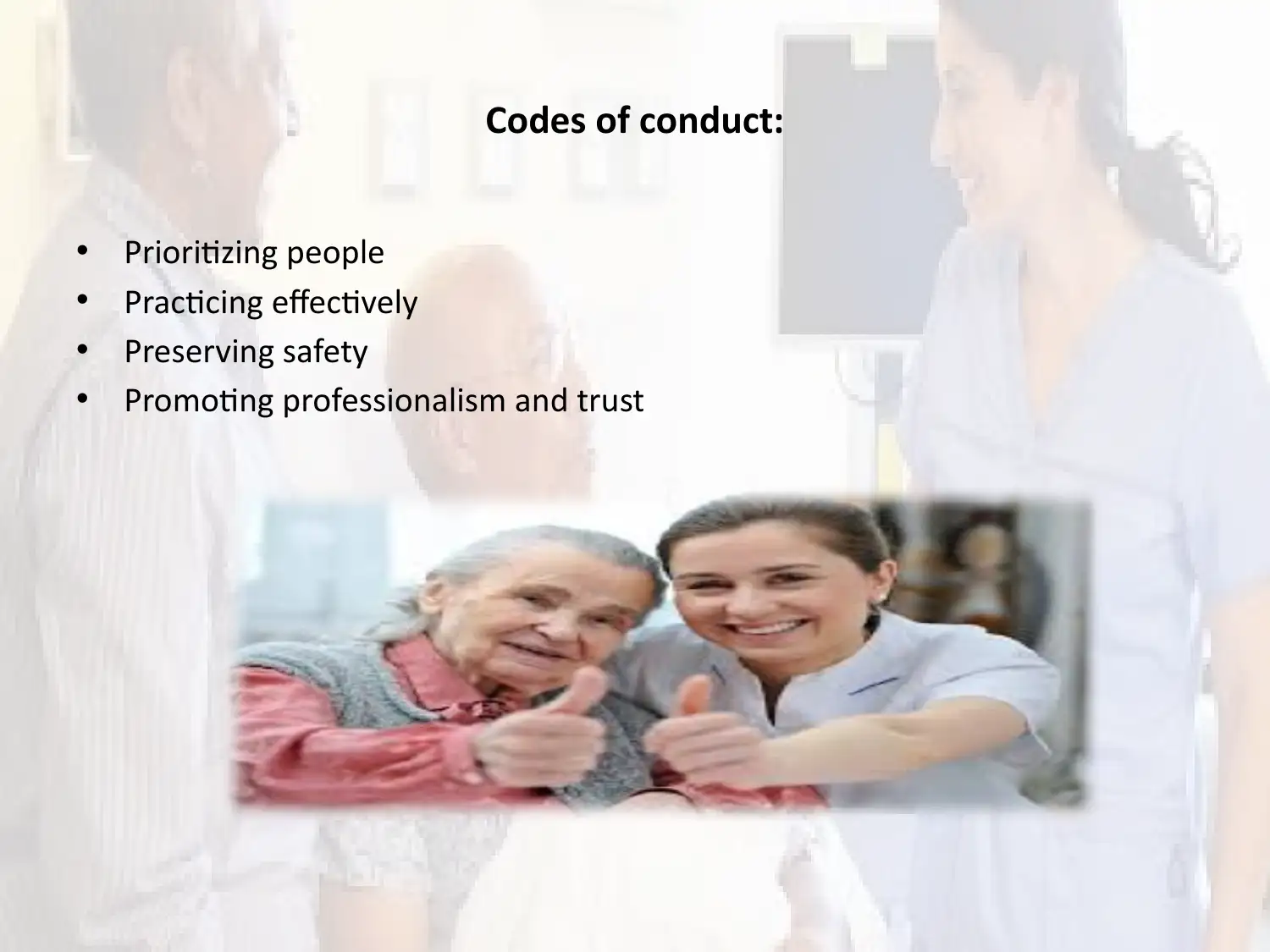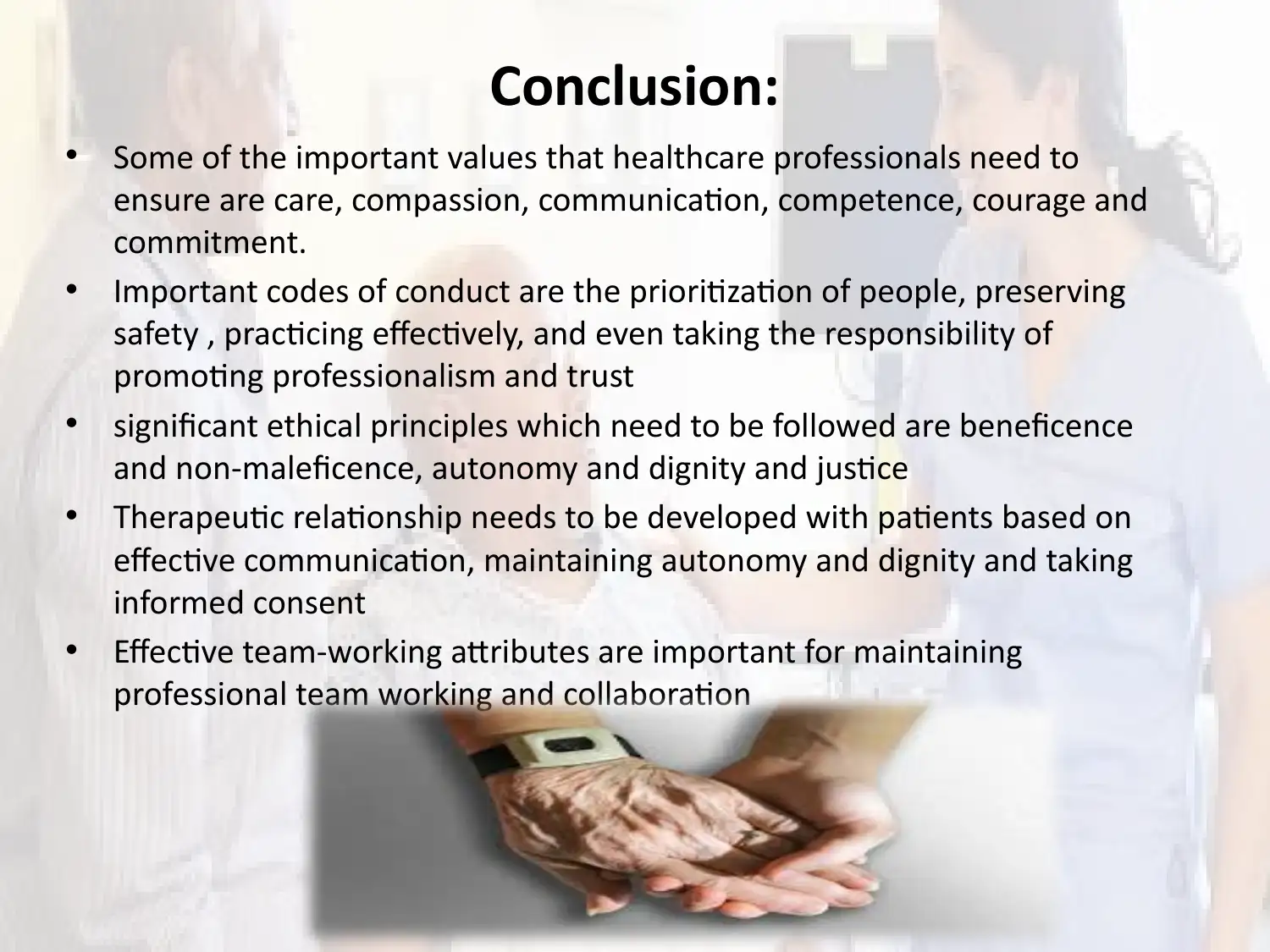Ethics, Values, and Codes of Conduct in Health Care Presentation
VerifiedAdded on 2023/04/22
|9
|556
|487
Presentation
AI Summary
This presentation delves into the essential aspects of ethics, values, and codes of conduct within the healthcare and social care sectors. It highlights key values such as care, compassion, competence, communication, courage, and commitment. The presentation also outlines important codes of conduct, including prioritizing people, practicing effectively, preserving safety, and promoting professionalism. Furthermore, it explores ethical principles like beneficence, non-maleficence, autonomy, and justice, emphasizing their impact on patient care and the development of therapeutic relationships. The presentation also discusses the significance of informed consent, mutual trust, and respect, as well as the importance of interprofessional and multidisciplinary collaboration within healthcare settings. The conclusion reiterates the core values, codes, and principles that healthcare professionals must adhere to, along with the significance of effective teamwork for maintaining professional collaboration. References from various sources support the content presented.
1 out of 9















![[object Object]](/_next/static/media/star-bottom.7253800d.svg)